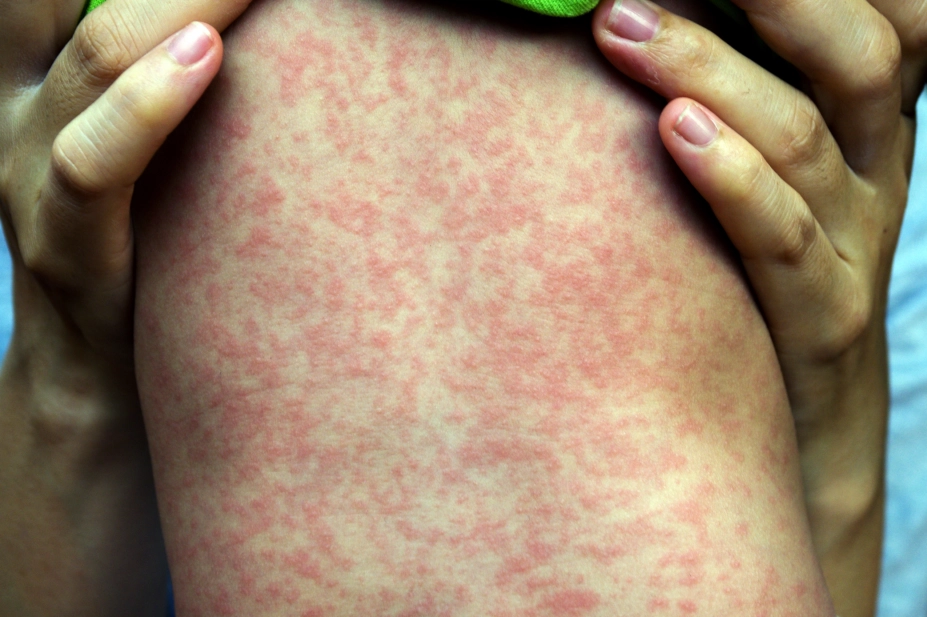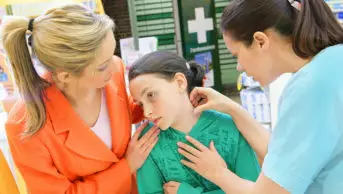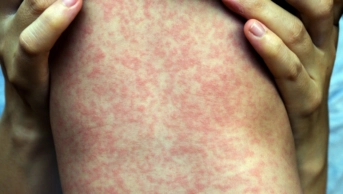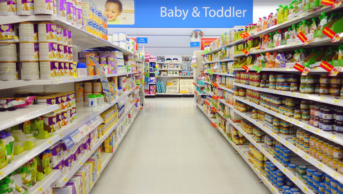
Shutterstock.com
A senior epidemiologist at Public Health England (PHE) has said that concerns about vaccinations are unlikely to be behind figures from international children’s charity UNICEF, which show that half a million children in the UK have not received their first vaccination against measles.
The UK has the third highest number of children who are not vaccinated against the disease among high-income countries included in the report. The United States has the most, with 2.5 million unvaccinated children, followed by France at 608,000 unvaccinated children.
UNICEF cited lack of access to medicine, poor health systems, complacency and, “in some cases, fear or scepticism about vaccines” for the fact that global uptake of the first dose of the measles vaccine has stayed constant at around 85% for a decade.
Some senior health figures in the UK have blamed ‘anti-vaxers’ for the low vaccination rates, with Simon Stevens, chief executive at NHS England, describing vaccine rejection as a “serious and growing public health timebomb”, and Matt Hancock, the health and social care secretary, writing on Twitter that “social media companies must act to stop dangerous anti-vax messages spreading online”.
Vaccines protect us and our children from awful diseases – social media companies must act to stop dangerous anti-vax messages spreading online pic.twitter.com/TkFUgab1us
— Matt Hancock (@MattHancock) April 25, 2019
But Jamie Lopez Bernal, a consultant epidemiologist in the Immunisation and Countermeasures Division at PHE told The Pharmaceutical Journal: “While vaccine hesitancy may be a factor for a small minority of parents, we know from our parental attitudinal surveys that confidence in the immunisation programme is high — the proportion of parents with concerns that would make them consider not having their child immunised has been at an all-time low for the past three years.”
“Timing, availability and location of appointments have been identified as barriers to vaccination by parents and healthcare professions.”
Dame Parveen Kumar, chair of the British Medical Association’s board of science, described the UNICEF figures as “incredibly concerning” and said accessibility to vaccination was key to boost take-up rates.
“Crucially, to increase vaccine rates, there must be easy access to facilities for all parts of the population to receive protection,” she explained.
“For this to happen there needs to be sufficient funding to deliver fully resourced services, be that in general practice, the community or through local authorities.”
The UNICEF report also revealed that the number of reported measles cases increased by 300% in the first three months of 2019 compared to the same period in 2018. And it shows that an estimated 110,000 people — most of them children — died from measles in 2017. This is a 22% increase on 2016.
Meanwhile the Royal Pharmaceutical Society (RPS) has written to PHE complaining that it ignored the contribution that pharmacists make in vaccination services in its latest campaign to mark European Immunisation Week.
Ravi Sharma, director of England at the RPS, said in the letter to PHE chief executive Duncan Selbie, that he was “disappointed” that the campaign did not reference pharmacists as vaccination providers.
He wrote: “This is despite our role in providing vaccinations on a large scale through the NHS national community pharmacy flu vaccination service, travel vaccines and other forms of immunisation.
“Pharmacists are also ‘vaccine heroes’ and play a central part in supporting immunisation plans and delivery. We very much hope that future campaigns will adapt to include the frontline profession of pharmacy and promote the vital role that pharmacists up and down the country fulfil day-in, day-out, in advising on and delivering immunisation campaigns.”


